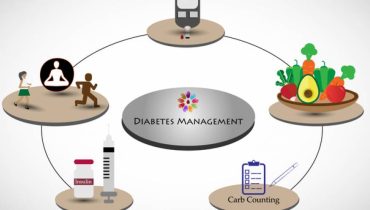In the quest for health and fitness, protein often takes center stage as a crucial nutrient for muscle building, weight management, and overall vitality. However, consuming excessive amounts of protein can have detrimental effects on health. This article explores the potential risks associated with overconsumption of protein and provides insights into maintaining a balanced diet.
Understanding Protein Consumption
Protein is an essential macronutrient composed of amino acids, which are the building blocks of tissues, muscles, enzymes, hormones, and immune cells. While adequate protein intake is necessary for optimal bodily functions, the Dietary Guidelines for Americans recommend a daily protein intake of 46 grams for women and 56 grams for men, based on a 2,000-calorie diet. However, many individuals, particularly those following high-protein diets or engaging in intense physical activity, consume far more than these recommended amounts.
Potential Health Risks
1. Kidney Strain:
One of the primary concerns associated with excessive protein intake is kidney strain. The kidneys play a crucial role in filtering waste products and maintaining electrolyte balance in the body. When protein is metabolized, nitrogenous waste products such as urea are produced. High protein intake increases the kidneys’ workload as they work harder to eliminate these waste products. Over time, this can potentially lead to kidney damage or exacerbate existing kidney conditions.
2. Bone Health Concerns:
Contrary to popular belief, excessive protein intake may negatively impact bone health. High levels of protein can increase calcium excretion through urine, potentially leading to a negative calcium balance in the body. Over time, this could weaken bones and increase the risk of osteoporosis, especially if calcium intake is inadequate to compensate for the increased excretion.
3. Digestive Issues:
Eating too much protein, especially from animal sources like red meat and dairy, can also contribute to digestive issues. These foods are often high in saturated fats, which can lead to inflammation in the digestive tract and increase the risk of conditions like constipation, diverticulitis, and colorectal cancer. Additionally, excessive protein intake may overwhelm the digestive system, causing discomfort, bloating, and gas.
4. Heart Disease Risk:
Certain high-protein diets, particularly those that emphasize red and processed meats, have been linked to an increased risk of heart disease. These diets tend to be high in saturated fats and cholesterol, which can raise blood cholesterol levels and contribute to arterial plaque buildup. Over time, this can lead to hypertension, heart attacks, and strokes.
5. Nutrient Imbalances:
Focusing excessively on protein intake may lead to nutrient imbalances in the diet. Diets that prioritize protein-rich foods may lack essential nutrients found in fruits, vegetables, and whole grains, such as fiber, vitamins (e.g., vitamin C, folate), and phytonutrients. These nutrients play vital roles in immune function, digestion, and disease prevention.

Balancing Protein Intake
Achieving a balanced approach to protein intake involves understanding individual nutritional needs and making informed dietary choices:
Moderation: Aim for a moderate amount of protein that meets your daily requirements without exceeding them unnecessarily.
Diverse Sources: Include a variety of protein sources in your diet, such as lean meats, poultry, fish, legumes, nuts, seeds, and dairy products.
Plant-Based Proteins: Consider incorporating more plant-based protein sources, which tend to be lower in saturated fats and rich in fiber and antioxidants.
Healthy Fats: Choose lean proteins and sources of healthy fats, such as avocados, olive oil, and fatty fish, to support heart health.
Consultation: For athletes or those with specific dietary needs, consult a registered dietitian or healthcare provider to determine optimal protein intake levels.
While protein is essential for health and well-being, consuming too much can pose risks to various bodily systems. By maintaining a balanced diet that includes a variety of nutrient-dense foods and monitoring protein intake levels, individuals can support overall health without compromising long-term well-being. Awareness of the potential harms of excessive protein consumption empowers individuals to make informed dietary choices that promote optimal health and vitality.
In summary, moderation and diversity are key principles in achieving a balanced diet that supports both physical and metabolic health.


















